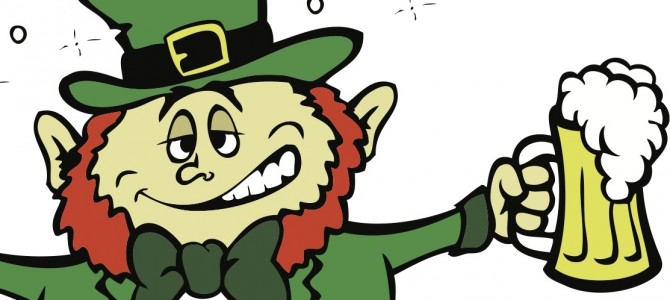After a long and epic struggle, Americans may at last have the opportunity to rectify one of our society’s gravest injustices: improperly named sports teams.
The US Patent and Trademark Office has taken the first courageous step by canceling the trademark for the Washington Redskins. The Redskins have long been a stain on our national honor, and I applaud the USPTO’s decisive action in this matter. It is my hope, however, that this action will be remembered throughout history as the start of a glorious movement to stamp out sports-mascot bigotry once and for all. As a next step, I propose we turn our attention to another egregious case of injustice: the Fighting Irish.
The University of Notre Dame officially adopted the mascot “Fighting Irish” in the 1920’s, but the nickname goes back at least to the turn of the twentieth century. While the precise origin is disputed, it is widely agreed that the name was coined by detractors as a taunt. In the late 1800’s, the WASP-dominated collegiate scene had little use for a Catholic school. Although the founders were French, opposing fans contemptuously noted that the Notre Dame rosters contained an inordinate number of boys named “Paddy” or “Brady”, usually with a last name beginning in “O”. “Here come the Irish,” they would sneer when Notre Dame entered the arena.
The addition of “Fighting” is particularly offensive, since it was clearly intended to invoke ugly stereotypes about Irish alcoholism and a propensity for brawling. The implication was that Notre Dame, even in victory, could never really win glory for American Catholics and their Blessed Lady. Come what may, they would always be drunken louts. Unsurprisingly, the nickname “Fighting Irish” really seems to have caught on in the era of Coach Knute Rockne, who is to this day the Division I college football coach with the highest winning percentage. White Protestants didn’t enjoy being kicked around the field by Irish Catholics.
I can anticipate the objections. Notre Dame chose to be called ‘Fighting Irish’! They’re proud of the name! Irish people are fine with it! I am sickened by this pitiful excuse-making.
What percentage of Irish people have been consulted about the Notre Dame mascot? And even if they did approve, shall we permit the oppressed to approve their own degradation? Do not our own consciences tingle every time use “tradition” as an excuse for participating in such obvious and unapologetic bigotry?
If anyone should suggest that this is “not a big deal” or “just a sports team”, I would invite them to attend a Notre Dame athletic event. One could hardly imagine a more hackneyed display of cultural stereotypes. Students wander about in green clothing with shamrocks painted on their cheeks; at key moments in the game, they link arms and hop around in a clownish imitation of Irish step dancing. Their mascot, the Irish leprechaun, is a ridiculous and cartoonish figure, simultaneously adorable and hyper-aggressive. Nothing could be more patronizing to a proud nation and its people.
What will it take before we recognize bigotry for what it is? Must the Notre Dame stadium serve corned beef hash before we come to our senses? Must students throw potatoes onto the field before we see this travesty for what it is?
Ireland is a country with a generous people and a rich and wonderful history. It is offensive in the extreme to suppose that this proud tradition can be adequately represented by shamrocks and a belligerent midget. Shame on you, Notre Dame. Shame on us all.
Rachel Lu is a senior contributor at The Federalist. She has a PhD in philosophy from Cornell University and teaches at the University of St Thomas. Her non-academic work can be found in Touchstone Magazine, the Public Discourse and Crisis Magazine. She is also a former Peace Corps Volunteer. Follow her on Twitter.









